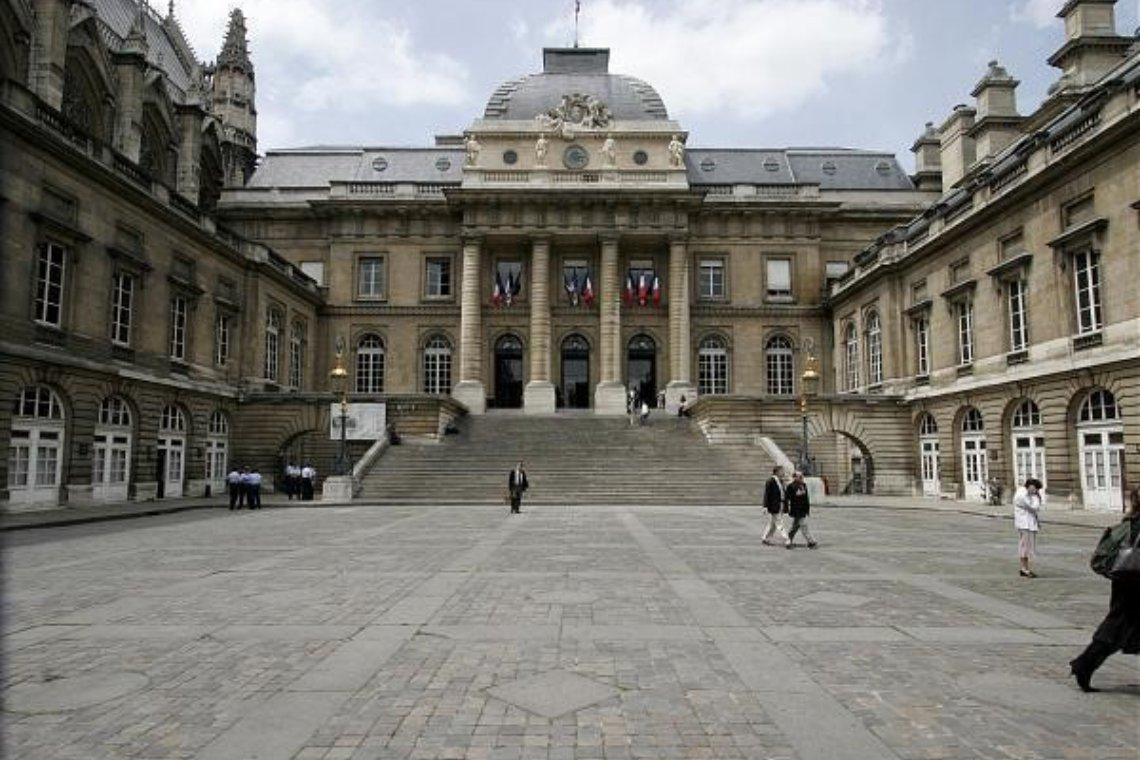Paris’ Court of Cassation, where the Sulu arbitration was moved after failing in Madrid. Image: Betavier, Wikimapia
When the Sulu heirs pursued a $14.9 billion claim against Malaysia, they secured financial backing from Therium, a prominent litigation funder.
This support led to an arbitration award in their favor, yet the legal and strategic decisions made throughout the process have since drawn significant scrutiny—not only toward the Sulu heirs' claim but also to arbitrator Gonzalo Stampa, lead lawyer Paul Cohen, and Therium itself.
A pivotal decision in the case was the relocation of the arbitration’s seat from Madrid to Paris after Spanish courts ruled that Stampa lacked jurisdiction. Despite this ruling, Stampa proceeded in Paris, where arbitration-friendly laws appeared to offer a more favorable setting. Therium’s reported $20 million investment, spread across nine rounds of financing since 2017, highlights its financial commitment to sustaining the case despite mounting legal challenges. A favorable ruling in Paris could have enhanced enforcement prospects, pressuring Malaysia into a settlement and thereby maximizing Therium’s return on investment.
Paul Cohen, instrumental in securing Therium’s involvement, adds another layer of complexity. Whether the decision to shift arbitration to Paris was driven by Cohen, Therium, or both remains unclear, but it has ultimately backfired. The move may have been intended to improve settlement prospects, but it also introduced greater legal risks—risks that were either underestimated or overlooked.
Shifting Legal Strategy
Litigation funders like Therium typically seek to maximize returns by facilitating settlements rather than prolonging legal battles. A negotiated resolution would have allowed Therium to recoup its investment while securing financial compensation for the Sulu heirs. By moving the arbitration to Paris, Therium may have sought to increase legal pressure on Malaysia, potentially prompting the state to negotiate rather than engage in protracted litigation across multiple jurisdictions.
However, Malaysia countered with an aggressive legal strategy, challenging the arbitration award in several jurisdictions and securing key victories. Instead of facilitating a settlement, the shift to Paris subjected the case to heightened legal scrutiny, ultimately leading courts across Western Europe to suspend or reject enforcement. What was intended as a strategic maneuver has instead undermined the arbitration’s credibility while increasing financial and reputational risks for Therium.
What was intended as a strategic maneuver has instead undermined the arbitration’s credibility while increasing financial and reputational risks for Therium.
Legal and Financial Consequences
The decision to relocate the arbitration seat has had significant ramifications. Spanish courts deemed the move unlawful, resulting in a six-month prison sentence and a one-year arbitration ban for Gonzalo Stampa. This ruling has further weakened the legitimacy of the arbitration process and intensified concerns over judicial compliance.
For the Sulu heirs, these legal setbacks have severely diminished the enforceability of their arbitration award. What was once regarded as a major legal victory now faces considerable obstacles, with multiple courts refusing to uphold it. Malaysia’s legal counteroffensive has further reinforced its position, making financial compensation increasingly unlikely.
Therium, in turn, faces scrutiny over its handling of the case, particularly from investors who expect rigorous legal risk assessment. The arbitration shift, coupled with the failure to secure a settlement, raises questions about whether legal challenges were underestimated. Additionally, Stampa’s legal troubles introduce concerns over whether Therium’s involvement—directly or indirectly—exposed key figures to legal liability.
Adding to these concerns is the revelation that Stampa was paid more than $2 million for his role as an arbitrator—an unusually high fee, according to James Boykin, chair of Hughes Hubbard’s international arbitration practice. Boykin commented, “The idea that a funder could see an arbitrator racking up north of $2 million and not be concerned is trouble.” If Therium failed to scrutinize such an extraordinary payment, this may indicate broader oversight issues, further eroding investor confidence.
Moreover, Stampa’s conviction could significantly impact Therium’s financial stake. As Boykin further explained, “A criminal conviction will not be an automatic nullification, but as a practical matter it’s going to make enforcement in any neutral fair forum near impossible.” Given the legal barriers, Therium now faces the possibility of losing its entire $20 million investment.
Given the legal barriers, Therium now faces the possibility of losing its entire $20 million investment.
Further Implications
Therium’s approach to the Sulu arbitration is now under increased scrutiny, with investors assessing whether the decision to relocate the case to Paris was a calculated risk or a critical misjudgment. The failure to secure a settlement, combined with mounting legal and reputational challenges, may influence Therium’s future litigation funding ventures.
For the Sulu heirs, prospects of securing a multi-billion-dollar payout are diminishing as courts continue to reject enforcement. Meanwhile, Stampa’s conviction casts a long shadow over the arbitration process, with potential long-term implications for his career, the broader arbitration community, and Paul Cohen, whose professional standing may also be affected by the fallout.
What once appeared to be a landmark legal victory now serves as a cautionary tale.
REFERENCES
Al Jazeera. (2023, June 7). Malaysia wins decisive victory in row with Sulu sultan’s heirs. Al Jazeera. https://www.aljazeera.com/news/2023/6/7/malaysia-wins-decisive-victory-in-row-with-sulu-sultans-heirs
Bloomberg Law. (2024). Arbitrator’s guilty verdict puts UK funder’s investment at risk. Bloomberg Law. https://news.bloomberglaw.com/business-and-practice/arbitrators-guilty-verdict-puts-uk-funders-investment-at-risk
Bloomberg Law. (2024). Dutch court rules in favor of Malaysia, adding to funder's loss. Bloomberg Law. https://news.bloomberglaw.com/business-and-practice/dutch-court-rules-in-favor-of-malaysia-adding-to-funders-loss
Euronews. (2024, February 19). The Sultanate of Sulu case shows the litigation funding industry is abusing the global legal system. Euronews. https://www.euronews.com/2024/02/19/the-sultanate-of-sulu-case-shows-the-litigation-funding-industry-is-abusing-the-global-leg
Law Gazette. (2024). Arbitrator in $14.9bn case jailed following intervention by Malaysia. Law Gazette. https://www.lawgazette.co.uk/news/arbitrator-in-149bn-case-jailed-following-intervention-by-malaysia/5118364.article
Reuters. (2024, January 8). Spanish court convicts arbitrator who awarded $15B to sultan’s heirs in Malaysia dispute. Reuters. https://www.reuters.com/world/europe/spanish-court-convicts-arbitrator-who-awarded-15-bln-sultans-heirs-malaysia-2024-01-08/
Reuters. (2023, December 12). Spain charges arbitrator who awarded $15 billion to sultan’s heirs in Malaysia dispute. Reuters. https://www.reuters.com/world/europe/spain-charges-arbitrator-who-awarded-15-billion-sultans-heirs-malaysia-dispute-2023-12-12/



